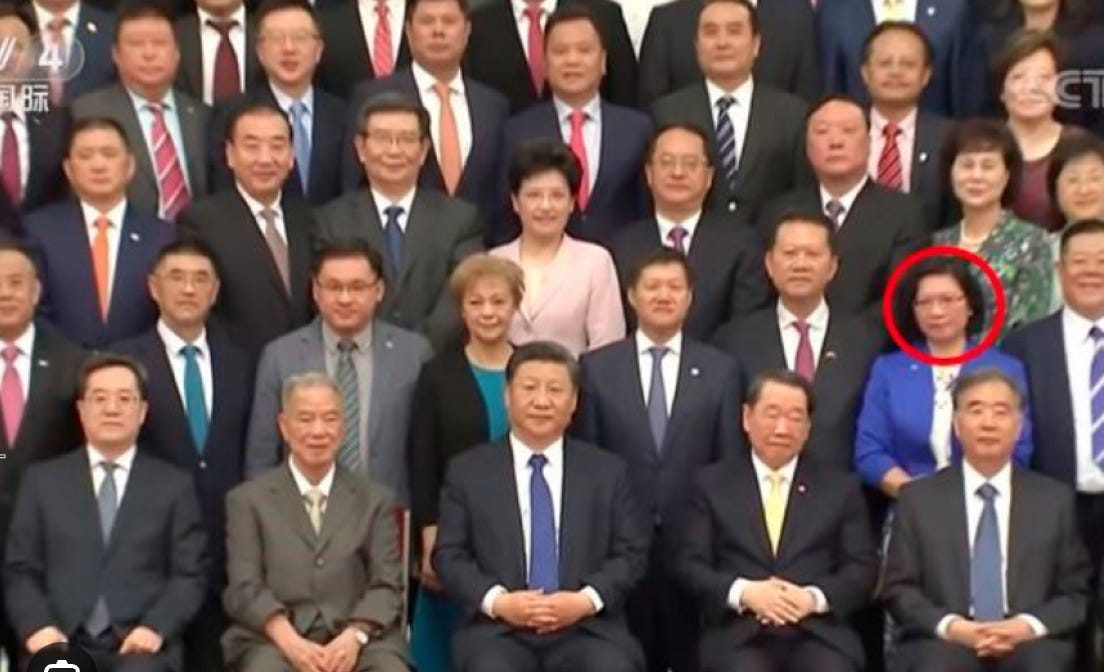Ottawa won't disclose threats from "high risk, high harm" PRC proxy
Op/Ed: Other nations have named PRC secret police proxies that allegedly fund Parliamentarians and threaten Diasporas, but Canada won't reveal dangers in "egregious" NSICOP case study

A few weeks ago I joined a panel of experts on Chinese foreign interference at McGill University with MP Michael Chong.
Along with McGill’s cyber-security researcher Benjamin Fung and Le Journal’s Sarah-Maude Lefebvre we discussed threats to Canada with graduate students from across the nation.
The panel occurred in the wake of NSICOP’s bombshell review of intelligence leaks that I started to report in November 2022, confirming that Canadian election candidates have been wittingly colluding with Beijing in election interference and accepting clandestine fund transfers “from foreign missions or their proxies.”
Some students wanted to know why Canada of all nations seems so heavily targeted by Beijing.
MP Chong got right to the point.
Citing NSICOP, he noted Beijing’s United Front Work Department, an organ charged with maintaining Chinese Communist Party influence in “overseas” diasporas, is funded with an astounding U.S. $2.6-Billion per year.
About $600-million is earmarked for spending in the West.
No other state — Russia, Iran, India — deploys near that amount of cash flooding secret police and disinformation into Western nations.
MP Chong estimated 10 percent of the United Front’s external funding is aimed at Canada alone. The “greater China” diaspora is about 5 percent of our national population. Basically, Chong said, this explains why Beijing is targeting Canada so intensively.
I told the gathered researchers I agreed with MP Chong 100 percent.
The United Front wants to use every Canadian citizen and permanent resident in the Chinese diaspora against Canada’s democracy, by any means necessary, including the corruption of violent gangsters.
I added that Canada borders the world’s top superpower and Xi Jinping has pledged to replace the United States as global leader by 2049.
Beijing sees Canada as a stepping stone in this plan. Our resources and institutions will be very helpful to Xi’s aims, I said.
So we are experiencing a strategic assault on our sovereignty just like they are from Taiwan to New Zealand and Papua New Guinea, Australia, and so on.
But why does this matter right now in Canada? Is it truly an existential threat, as CSIS has reported?
I would argue that threats of violence and subversion of our freedoms are not relegated to a distant future. Chinese secret police are operating brazenly in our cities and attempting to control immigrants as if they still lived in Beijing or Shanghai or Shenzhen.
As my colleague Sarah-Maude Lefebvre shared, her diaspora sources fear living in Montreal. She described a case that appeared to reveal Chinese secret police infiltrating a pro-democracy group.
Lefebvre also found there is no level of political office in Quebec below Beijing’s attention. A library board appeared to be infiltrated, she said, so information disapproved by the Chinese Communist Party wouldn’t appear on Montreal book shelves.
Benjamin Fung, a researcher that identified WeChat attacks on Hong Kong Canadian legislator Kenny Chiu in the 2021 federal election, said he also discovered that pro-Beijing activists once discussed dropping heavy objects from towers in Montreal onto a parade of pro-democracy supporters.
The solution to these clear and present dangers?
Ottawa has just passed a foreign influence act that I identified as a crucial gap in November 2022.
But as NSICOP reported and experts continue to explain Canada’s inability to convert what we know from wiretaps about China’s brazen interference into actual prosecutions is a longstanding legal impediment that seems to be rooted in our Constitution.
In the meantime, MP Chong told the McGill Panel, Canadians deserve to know the harms they face.
His own experience proves it.
CSIS knew MP Chong and his family were targeted by China’s secret police simply because Chong had led the way in 2021, shining a Parliamentary light on Beijing’s genocide in Xinjiang. Our intelligence service wasn’t empowered to fully warn Chong until media reported the threat, NSICOP’s review says.
Sunlight is the remedy recommended by international experts, MP Chong argued.
He said Canada’s default position is to keep shocking information on Chinese interference secret. But that must change in proportion to the incredible risks our citizens are facing.
That brings me to an under-recognized case study in NSICOP’s 2024 review.
Under the section titled “Leveraging relationships with influential Canadians” NSICOP describes how hostile states undermine our democracy by “establishing reciprocal relationships with influential Canadians, using clandestine networks, employing proxies, and covertly buying influence with candidates and elected officials.”
Specific to the People’s Republic, this section says Beijing “relies on a network of proxies, including prominent business people and community leaders, in major urban centres like Greater Vancouver [and] Greater Toronto.”
Redacted paragraphs then point to a completely censored 12 paragraph case study regarding the “PRC proxy considered by the security and intelligence community to be the most egregious case of foreign interference.”
Censorship notes explain this PRC proxy was considered a threat to Canada in all ways under the CSIS Act, including threats of bodily harm.




